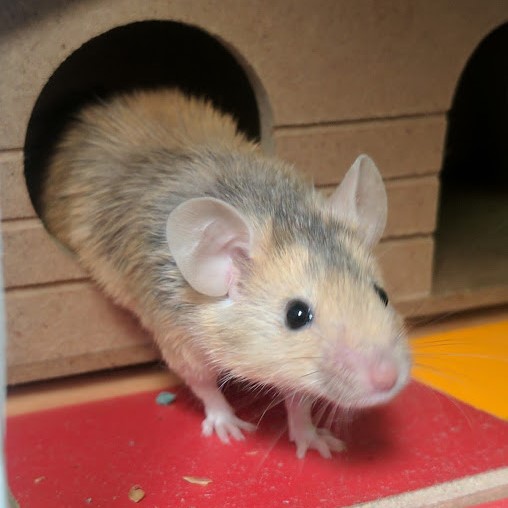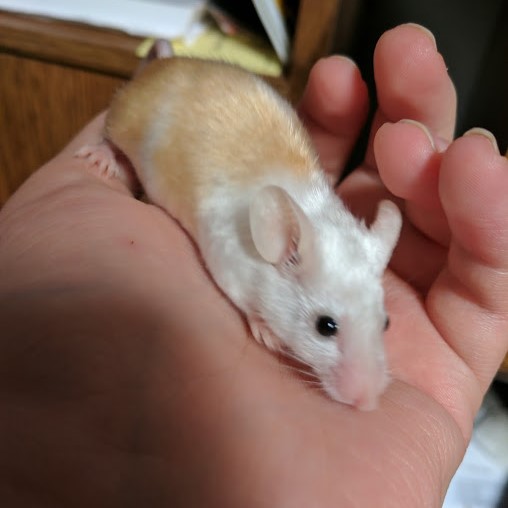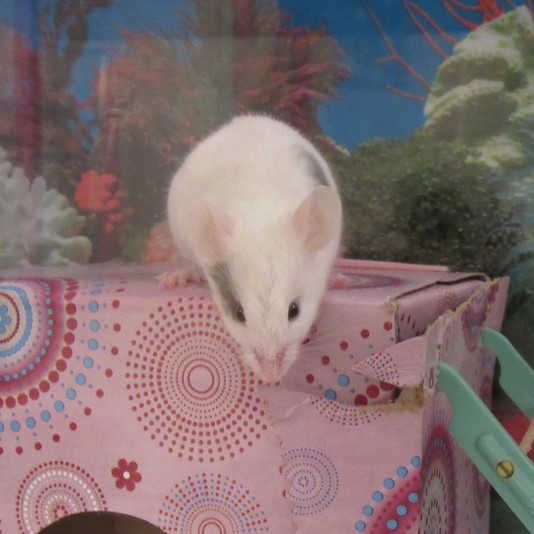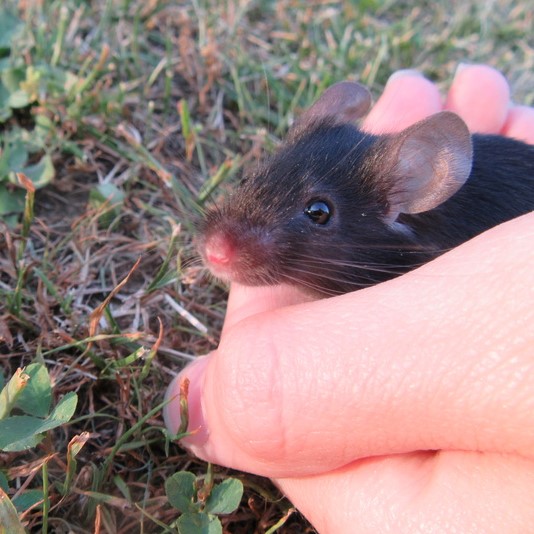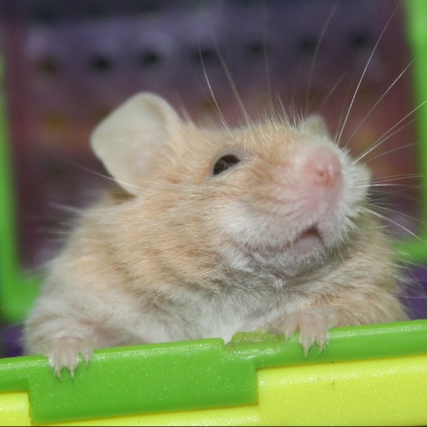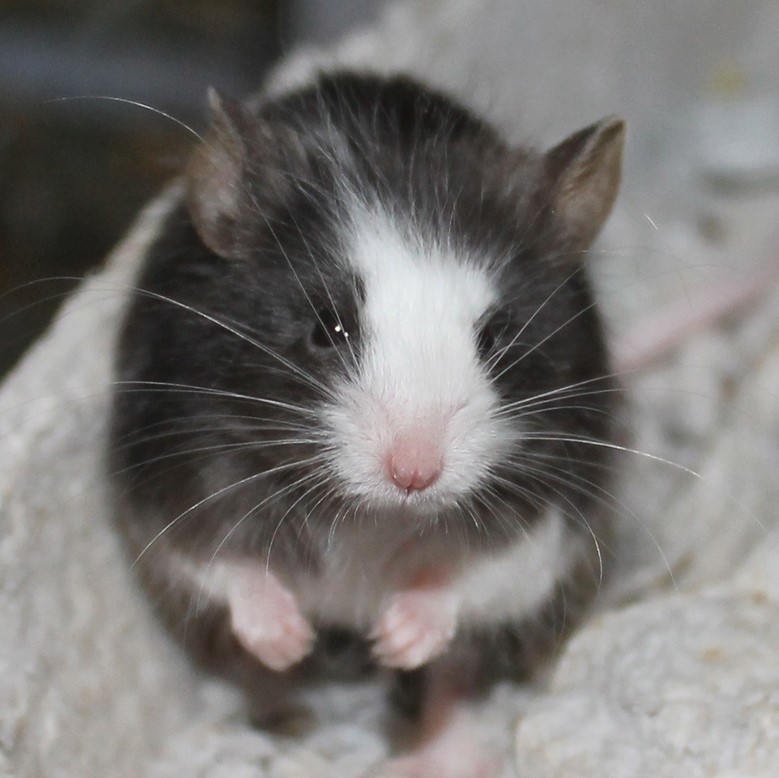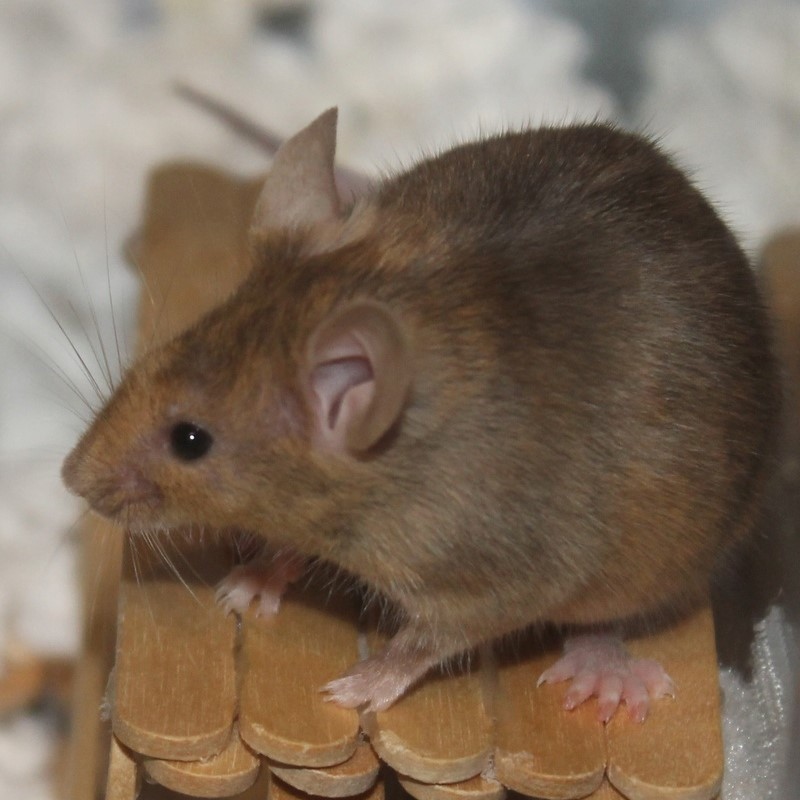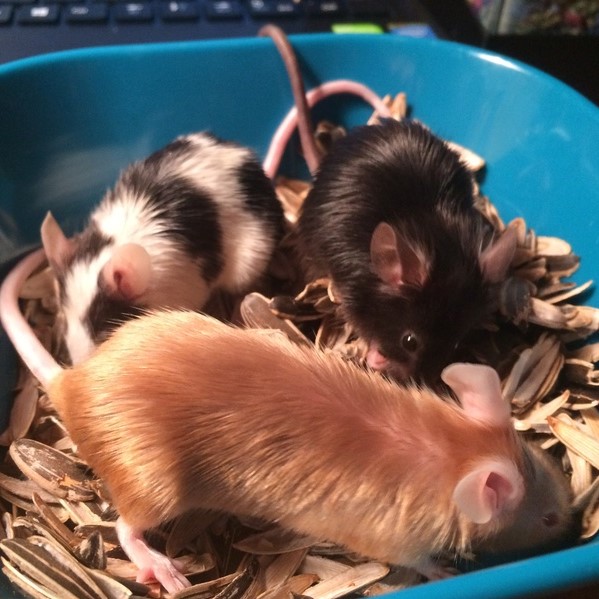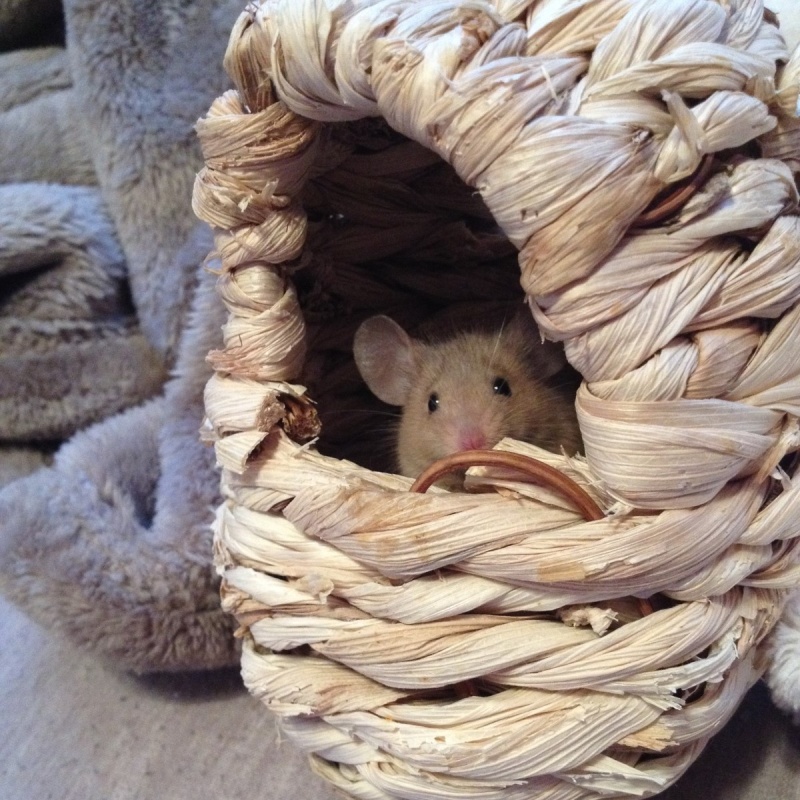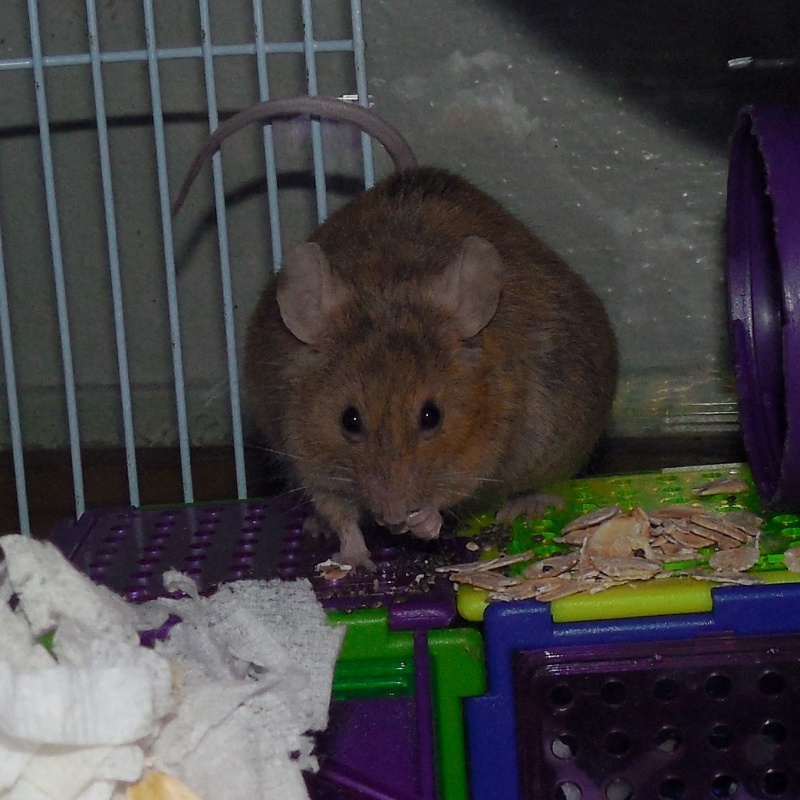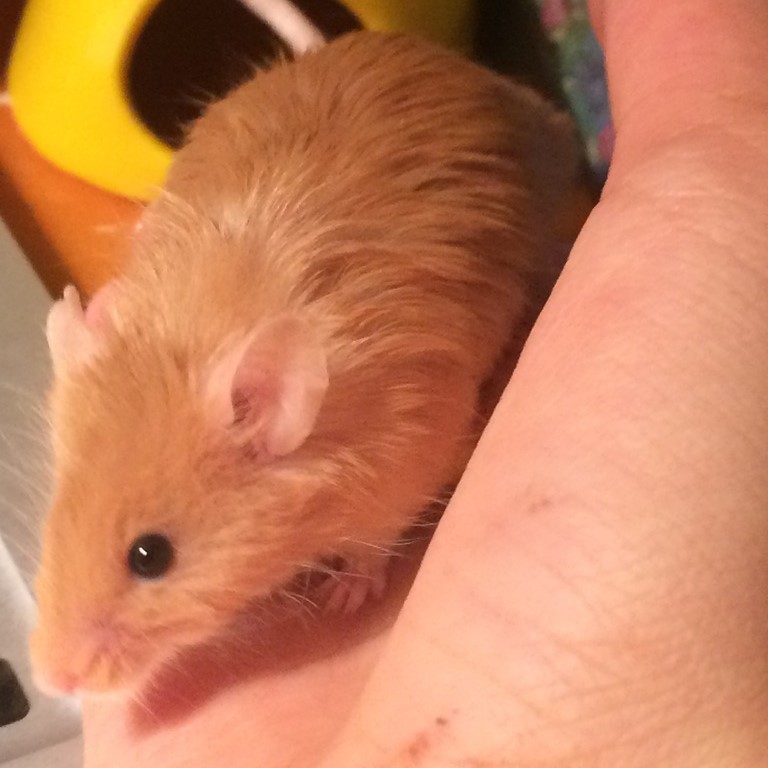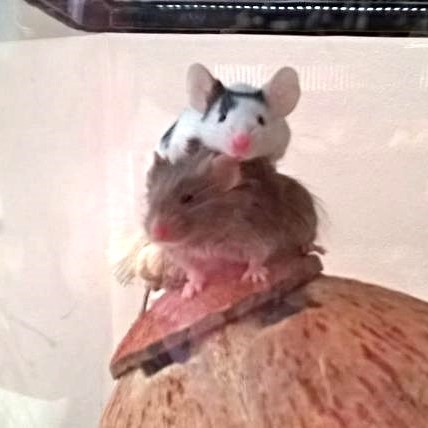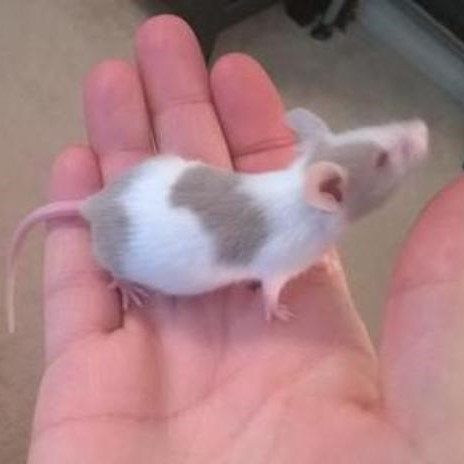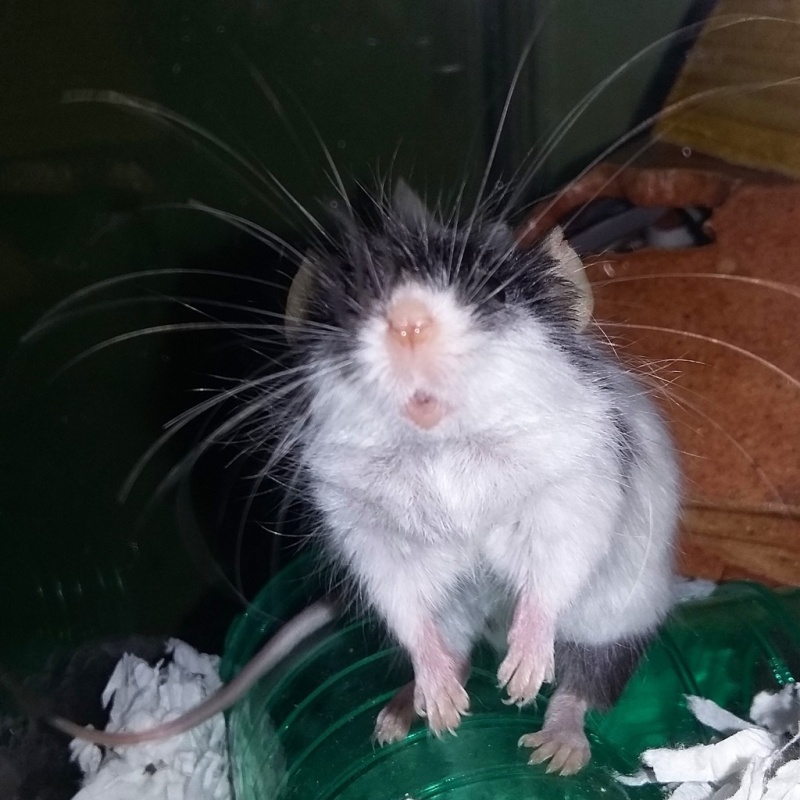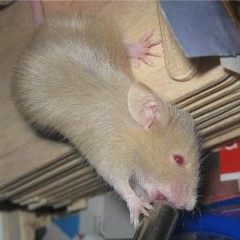Health Packet
4 posters
Page 1 of 1
 Health Packet
Health Packet
| The content on this page was first published on The Fun Mouse website and has been reposted with permission. Please do not reproduce in any way. |
Important Introduction
Please note that prompt vet care is always advised. None of this information, or its use, is to take the place of vet care. These things are only here to help in the time it takes to get to the vet and to supplement information.In this thread you'll find the following:
- Emergency Supplies
Things to have on hand in case of a mouse emergency. - Neutering
Things you should know and consider before getting your mouse neutered. - How to medicate a mouse
2 video clips showing 2 different ways to give oral medications effectively and efficiently. - Waltzing/Circling
What waltzing is, what causes is, and what you should do if you notice it. - Tapeworms and Internal Parasites
Emergency Supplies
Herein is a list of things you should have on hand when caring for mice. It is advisable to have all supplies on hand before acquiring mice as problems can arise any time.
- Veterinarian
Before you bring your pet mouse home, you should find a veterinarian that will see your mice and have their number on hand. You should also have information for an emergency vet. If you already have a vet who handles your other pets, ask them if they are able to handle pocket pets.
To see a list of vets that were recommended by members of the The Fun Mouse forum, see this page: https://www.petmousefanciers.com/t717-vet-listings-and-reviews
To search for a vet near your location, visit Vetective.com
When looking for a vet, have a list of questions prepared because not all vets are able to care for pocket pets adequately. Below are a few of the questions to get you started. This is only a base point, please ask them about all concerns you may have! - "Do you handle pocket pets?"
If they don't, thank them for their time and move on to another vet. - "Do you have the equipment and are able to perform surgeries on mice if needed?"
If they can't, find one that can. - "Are your vets available for emergencies, day or night, including holidays?"
If they can’t, you’ll also need to find a vet that is available for emergencies day or night.
You never know when your mouse will need veterinary attention, and veterinary care is not cheap. Having an emergency fund for any pets is very important!
A 10 gallon tank or a large Kritter Keeper will allow you to take your mouse to and from the vet easily. They also make good hospital cages. When you have more than one mouse in a cage, it is important to be able to quarantine the ill or injured one so they can recover (depending on the illness).
If your mouse becomes chilled, place a heating pad on the lowest setting, under a towel, and then under 1/2 of their tank. Never place a heating pad directly in contact with your mouse! Make sure the mouse can easily get off of it if he or she becomes too hot. Also check the heating pad often to ensure it doesn't get too hot at any time. Mice can overheat quickly! All a mouse needs is a little warmth, not extreme heat. It also helps to hold your mouse close to you, to warm him or her up. If your mouse is too lethargic to move, do not place them on the part of the tank over the pad as they will not be able to move off of it if they become too hot. In this case, using your body heat to warm them up is recommended. Human body heat works great when getting their temperature back to where it should be.
Non-electrical heating pads, such as air activated heating pads, can help in an emergency, such as the electricity going out in your home.
To clean a wound, use mild, unscented, antibacterial soap and warm (but not hot!) water on a towel. There is no need for rubbing alcohol or hydrogen peroxide (H2O2) as antibacterial soap is more mild and will do the job just as well. Never use bleach to clean wounds! For eye "gook", use a towel and warm water to cleanse (no soap!). Eye infections and open wounds need vet care. Towel, soap, and water is only to clean it up in the meantime. A small towel can also be used to help constrain the mouse safely.

This is good to have on hand in case one of your mice gets injured. Neosporin
 will help prevent/kill infection as well as relieve pain (so long as you get Neosporin
will help prevent/kill infection as well as relieve pain (so long as you get Neosporin with pain reliever). When applying it to wounds, make sure you rub it in well and always clean excess off. Your mouse will likely hate the first application, however, they generally learn to love it as they know it helps. Mice that have been treated with Neosporin
with pain reliever). When applying it to wounds, make sure you rub it in well and always clean excess off. Your mouse will likely hate the first application, however, they generally learn to love it as they know it helps. Mice that have been treated with Neosporin often lean into it as it soothes them. Apply Neosporin
often lean into it as it soothes them. Apply Neosporin 2+ times a day. Any open wound can become infected easily. See a vet for proper attention right away.
2+ times a day. Any open wound can become infected easily. See a vet for proper attention right away.
This can greatly help chronic scratchers, especially those with hot spots caused by allergies. It is an antihistamine which helps allergic reactions and therefore helps relieve itch. Stronger antihistamines can be obtained via a vet when needed. Any open wound can become infected easily. See a vet for proper attention right away.
Saline is useful for when you need to flush your mouse's eyes and to ease irritation. To make your own, mix 1 teaspoon of salt with 1 cup of warm water.
Ivermectin is used to treat mice for lice, mice, and other parasites. For more information, visit this page: https://www.petmousefanciers.com/t17-hair-loss-scratching-and-parasites
Plain baking flour or cornstarch is great for stopping bleeding, should something happen that causes your mouse to bleed and not clot fast enough. It is perfectly safe for them and is painless when applying. Any open wound can become infected easily. See a vet for proper attention right away.
Kitten Milk Replacer (KMR) can save lives! It literally works miracles! If you have a dehydrated mouse, one that has lost weight suddenly, or one that isn't acting well, mix up some KMR for them. You can mix KMR with either oatmeal or cooked rice (you can use any type of rice, however, mice tend to prefer white). Use warm water to mix it into paste form. Serve warm but not hot! Make sure you replace it often as it will go bad if left for long periods of time. If your mouse has any of these symptoms, you need to seek veterinary care immediately to find out what is wrong and have him or her treated. If you breed, you will also need KMR on hand in case you are forced to hand raise bubs.

Gatorade
 contains electrolytes which can help bodily fluid function properly. If a mouse is dehydrated, electrolytes will help boost them. Electrolytes also make the animal feel thirsty, making them want to drink more. The nice taste of Gatorade
contains electrolytes which can help bodily fluid function properly. If a mouse is dehydrated, electrolytes will help boost them. Electrolytes also make the animal feel thirsty, making them want to drink more. The nice taste of Gatorade also helps them want more, in turn it hydrates them better. If your mouse is dehydrated or has diarrhea, diluted Gatorade
also helps them want more, in turn it hydrates them better. If your mouse is dehydrated or has diarrhea, diluted Gatorade is most commonly recommended by vets. You still need to see a vet if your mouse is dehydrated or ill. If your mouse is this bad, you need a vet as soon as possible! Vets can also give your mouse fluids (under the skin) to give them the added boost they need. In addition, if your mouse has wet tail, he/she needs a vet immediately! Wet tail, as well as dehydration for any reason, can kill within 24 hours.
is most commonly recommended by vets. You still need to see a vet if your mouse is dehydrated or ill. If your mouse is this bad, you need a vet as soon as possible! Vets can also give your mouse fluids (under the skin) to give them the added boost they need. In addition, if your mouse has wet tail, he/she needs a vet immediately! Wet tail, as well as dehydration for any reason, can kill within 24 hours.Unflavored Pedialyte can be used when you have a dehydrated mouse, as an alternative to Gatorade. Dilute it with equal parts water.
This Pedialyte recipe will work if you don’t have Pedialyte or Gatorade available:
1 tsp salt (teaspoon)
3 Tbsp sugar (tablespoon)
1 quart warm water
Mix all ingredients in warm water. Feed to mouse with syringe. Store in refrigerator for up to 48 hours.
How to reheat: Fill a coffee mug with hot water. Fill the syringe with Pedialyte and place it in the mug for a couple of minutes. Squirt a drop on the inside of your wrist to make sure the liquid isn’t too hot. It should feel barely warm on your skin.
White Karo Syrup is good for bloating, upset tummies, and constipation. Mix equal Karo Syrup and hot water until it's completely dissolved.

AppleCheeks- Sr Member

- Join date : 2016-04-03
Posts : 123
MouseDaisy likes this post
 Neutering
Neutering
Neutering
There are some important things to know and consider before you decide to neuter your mouse. It's advisable to also speak with your vet before considering a neuter or a spay for your mouse. Please note that none of this advice is to take the place of a vet's.Is neutering necessary in your case?
Males should only be neutered when you want them to be able to live with other males or females without breeding. If you only have the one male, then it's probably not a good idea to put him through that for no reason. If you haven't gotten your mice yet and you think you may get two males and neuter them both, then think again. You may as well get two females. Even though a male is neutered, it doesn't mean that it changes his whole personality (though sometimes it does). A neutered male, especially if he was neutered late, will still have an interest in breeding females, though it may decrease. If you are trying to get rid of his aggressiveness to other males, neutering may help, but only slightly, or it might not help at all.Is your mouse a good candidate for neutering?
If your pet is older or unhealthy, then do not have him neutered. An unhealthy animal may die during the procedure, or die afterwards. If he is old, putting that kind of strain on his body can't help him at all, plus if he doesn't have much time left then why bother? You have to decide whether it is worth it or not before you go ahead.Will you be willing to pay for it?
Neutering a mouse, depending on the veterinarian you choose and where you are located, will run you about $60-$100, or about the price of neutering a dog. Although I've heard it go all the way up to about $300! Also, if something goes wrong, you may have to bring your mouse back in and that will cost you extra.What if something goes wrong?
As with any surgery, there is a possibility that something will go wrong. Will you be able to handle it? Some animals have weak hearts and may not recover. Some mice may not react well to the anesthesia. A huge risk when neutering a mouse is tearing of the incision when doing the procedure. The rip can continue all the way to the mouses rectum. After the surgery some mice may open their incision and bleed to death if you don't notice it. There are few things that can go wrong, but they do exist and you have to prepare yourself and think about these things when deciding whether or not to neuter your critter.Pros and cons of neutering.
Pros
Your mouse may be able to live with other males.Your mouse will be able to live with females without breeding them.
His aggressiveness may decrease.
His smell may decrease.
Living with other mice will make him happier if he is in fact able to (personality wise).
Cons
He will likely still be aggressive to other males and won't be able to live with them.He may still have an interest in breeding females so the females won't want to live with him (severe cases).
His aggressiveness and smell may not decrease.
He will have to remain in a special, small cage with no wheel for 1-3 weeks.
He may not survive the procedure. Small animals do not react to anesthesia the same as other pets. Their risk for survival through a surgery is higher.
The cost is high.
You may have to return to the vet if other problems arise.
There is a very high risk of tearing (from testicular sacks all the way to his anus) and your vet might not be able to complete the surgery or your mouse could be in a lot of pain from the tear.
While rare, is possible that the testicles will grow back. Should that be the case and he is housed with other females, you may end up with a lot of pregnant does.
You have no idea how he is going to be after the surgery, and if he doesn't change at all, you may just end up with a very expensive waste of time.
The bottom line
Do not neuter unless you have to; either you want him to live with females or you want him to live with males (who usually must also be neutered for that to work and even then it doesn't always work). If you just want him to be nicer to you or to be less smelly, then neutering is not necessary as it will probably not help in that case.The procedure: before, during, and after
This is what normally happens with neuters, but it's not the same for everyone. Listen to the advice your veterinarian gives you and all should go well.Before neutering
Of course by now you should have read up on neutering, asked people who know about it, and make sure that this is the right thing to do. Make sure your veterinarian is knowledgeable on the subject, and make sure that he or she is willing to do this surgery. Many vets do not like to partake in small animal surgery, so make sure that yours does before you make an appointment. You can always phone ahead and speak to the doctor and ask them your own questions free of charge. Also make sure they have the proper equipment. Mice are extremely small and special equipment is more ideal.Ask your veterinarian if your mouse needs any special care before the surgery. Don't give your mouse food before the operation, but always provide water. While it is true that mice can not vomit, food before a surgery is still a risk. Mice can regurgitate and choke to death. Bring the mouse in his tank for the surgery. The tank should be small, such as a 5 gallon tank, with plenty of warm bedding. It is recommended that you use fleece, paper towels, shredded paper, or Carefresh as they should not get stuck in the incision and injure your pet further. Fleece is also something warm to help them keep body heat after the surgery. White or light bedding is best, that way it will be easier to tell if your mouse is bleeding a lot more than he supposed to. Give him a house to hide in but do not allow them a wheel. He should not have anything other than the bare necessities such as a water bottle, bedding, and house. The house should not be too big or hard to climb in. Mice like small, dark places. After this, there's not much you can do until it is over.
During the procedure
When the vet is ready to neuter your mouse, he or she will have to put it under anesthesia first. Since mice are too small to handle intravenous injections, they are put into a small box or a dog's face mask where the gas anesthetic is slowly put into. The mouse breathes the gas and falls asleep.Once the critter is asleep, a smaller mask is held over its mouth and nose so that it will continue to sleep during the surgery. The hair is then removed from the scrotum and it is washed with disinfectant soap so that no germs will get into the incision.
Once he is all washed and ready for surgery, the veterinarian will take a scalpel and make a small incision across the scrotum. The vet will then push the testicle out of the sack. This is one of the largest risks when neutering a mouse. During this process the sack can rip open, potentially ripping all the way to the rectum. A vet should be able to see this starting and stop the surgery right then. This will leave you with an un neutered mouse. If the rip happens to quickly and it gets to the rectum, this can cause an array of complications and pain. Scrotum ripping is extremely easy and rather common. Please keep this in mind when choosing to neuter or not. If this part of the procedure is a success and the testicles are out, the vet will fully remove the testicle, close it off, and trim the excess fat. Then the veterinarian will use suture material to bring the incision together with a single stitch, but the stitch will be inside the skin so the mouse cannot chew it off. The suture will dissolve by itself, so you don't have to worry about going back in to have it removed later. The skin itself will then be glued together with powerful surgical glue. This glue will help keep your pet from opening its wound and will give it time to heal on its own.
Once the surgery is complete, the mouse will be cleaned up a bit and then placed inside its cage with a warm blanket. Somebody will watch it wake up so that there are no problems. They usually awaken pretty quickly, and will most likely start licking at the incision right away. As long as they aren't obsessed with chewing it, then that's okay. Let him lick at it all he wants, pending he isn't opening the wound, it will make him feel better. Once your pet is awake enough and there are no other problems, he can go home.
After neutering
When your critter goes home he may still be groggy. Don't bother him until the next day, to give him a chance to recover. You can give him his regular amount of food, but keep using the special bedding and leave his exercise wheel out of the cage for at least another week. Some can't have a wheel for up to 3 weeks, depending on how fast he heals. He will be a bit slow moving for a little while, but once he is more active and wants to play, you should provide him with chew toys to help curb his boredom. Check him daily for any signs of wound chewing or excessive bleeding and make sure that he is eating and drinking. Your newly neutered male should not be introduced to a female until completely healed (2-3 weeks), should that be your plan. A neutered male still produces sperm for a little while after neutering, therefore you should keep him away from females for at least 2 weeks. We don't ever recommend housing a buck with other bucks (neutered or not) because the chance of them getting along isn't good. They could kill themselves just as before. Never hesitate to call your veterinarian if you see any problems or have any questions.Spaying a female
I'm not going to go into detail about spaying as I feel it's unnecessary in most all cases. Spaying a female is a much greater risk than neutering a male. Spaying is much more invasive than neutering. During a spay the vet must open the mouse’s abdomen, push organs aside, and then pull the uterus out. Then he/she must sterilize the female by removing her ovaries or clamping them off. Then he/she puts everything back and stitches her up with surgical glue, much like the neuter. Keep in mind that a mouse has very small organs which make things more difficult.Most of the time there is absolutely no reason to spay a mouse. In my opinion, the only reason do a surgery like this is if there is another medical problem such as tumors, cysts, or problems delivering. A spay will cost more than a neuter because of the depth of the procedure. A vet should specialize in small animals and have the right equipment to perform the surgery. If your mouse must have the surgery make sure your vet is qualified and has the proper equipment.

AppleCheeks- Sr Member

- Join date : 2016-04-03
Posts : 123
 How to Medicate a Mouse
How to Medicate a Mouse
How to Medicate a Mouse
This section includes two video clips that show two different ways to give oral medications effectively and efficiently. If you still struggle to medicate your mouse, find someone who can help you hold the mouse or ask your vet to teach you how they do it.Using the glove method
Using the scruffing method
CallaLily- Hero Member

- Join date : 2016-04-03
Posts : 3937

 Waltzing/Circling
Waltzing/Circling
Waltzing Introduction
The term Waltzing derives from Japanese waltzing mice, however there are many strains of waltzing mice known today. These mice have a neurological disorder which causes circling behavior. They almost always run in one direction, in a circle pattern, and it can sometimes get rather violent. Sometimes mice also have a head tilt in addition to circling. The circling is so severe that they are unable to walk in a straight line or run on a wheel. This type of waltzing is inherited and can sometimes be seen from the time babies start walking around. It increases in severity as the mice age. These mice generally don't live very long. The term "Waltzing" is often used in the mouse fancier community as a blanket descriptive term for any circling behavior among mice. There can be many causes for waltzing, explained below.Causes
- Neurological disorders
You can think of this as a short circuit in the wiring of the brain, causing circling behavior. As stated in the paragraph above, this is often inherited. Mice exhibiting this behavior should never be bred, under any circumstances. There is no cure to this disorder and these mice generally don't live very long. They do tend to be some of the most docile mice though. - Brain Tumor
Circling behavior can be caused by a brain tumor or abscess which is pushing on the brain. At the present time, there is nothing that can be done for a mouse with a brain tumor. The risk of attempting a brain operation is far too high. However, an abscess can be treated with medication for infections, such as Baytril or something of the like. One round of medicine can completely cure the mouse and they can go on to living a normal life. - Ear infection
A simple ear infection can cause circling behavior in mice. Sometimes ear infections are obvious by the secretion coming from the ear. However, some ear infections are deep inside the ear and can't be seen. An ear infection can be cleared up with a round of medication and the mouse can go on to living a normal life. - High frequency noises
Mice are very sensitive to high frequency sounds as their hearing range is far higher than a humans. Sounds which we will not hear can severely harm a mouse. Modern conveniences can cause mice to circle in pain, bleed from the ears, and can even cause death. Things such as standard televisions and computer monitors put out these harmful noises. Flat panel TV's and monitors do not. It is best not to keep mice in rooms with anything putting off a high frequency noise. If you are concerned about high frequency sounds in your home and around your mice, you can purchase a Bat Detector. These measure high frequency sounds and will tell you where the bad spots in your house are. - Injuries
If a mouse has an injury it may circle because of pain or disorientation. Check your mouse over for any open wounds and gently touch the feet and limbs to make sure they are not tender. If they are, a vet can help with pain medication and possibly even a splint a limb if anything is broken. - Stroke
Circling can be a result of a stroke, causing part of the mouse to become paralyzed or the mouse could be disoriented. There is nothing you can do to help if this is the cause. All you can do is wait it out and hope the situation corrects itself. There is a good chance it will.
Treatment
If your mouse is circling, the best thing you can do is take him or her to a vet for an exam. A vet will generally always give you medication to treat infection, in case the circling is caused by an ear infection or abscess. Not going to a vet for treatment is not an option because if it is an infection, it will cause the mouse to die if left untreated.Video Clip
Warning: Some audiences might find this disturbing.
This video clip is presented to help you identify waltzing behavior in mice.
CallaLily- Hero Member

- Join date : 2016-04-03
Posts : 3937

 Mice with Tapeworm
Mice with Tapeworm
This is some detailed information from @Norman's Mom on caring for mice with tapeworm. I found it helpful, so if there is ever anyone else on this forum in a similar situation, all of her advice can be found here.
---------------------------------------------------------------------------------------------------------------------------------------
Other info that may be useful:
RMCA's page on worms
Diseases and Disorders of Mice
---------------------------------------------------------------------------------------------------------------------------------------
- I always advocate finding a new vet if you feel the one you are using is not adequately handling the situation.
- You need to understand the tapeworm. When you know what it (or any disease/parasite) does to a body, you can combat the lethargy and weight loss (and other symptoms). They rob their hosts of nutrients, block intestines, and take up space in organs that can damage or stop them from functioning properly. They can settle in livers, eyes, muscles and brains... not just the intestine.
So, a bad infestation in mice, who are so teeny, will result in anemia, at the very least (and death or damaged organs at the worst)- making gaining the weight back difficult. For the kind of tapeworms that infect mice, usually an anti-parasitic drug AND a anti-inflammatory drug are prescribed together.
Adding foods like poultry and seafood (salmon is excellent), legumes, dark green leafy veggies, apricots, strawberries (not the tops), high-in-iron cereals, breads and pasta (cooked, or not) and peas are good for mice recovering from tapeworms... especially the poultry. They need much more fresh foods, like everyday, then normal mice, for the rest of their lives. It's so much better for them.
Environments need to be seniorized and you need to treat the infected, visibly sick-acting mice as if they are in intensive care- so things need to be clean, sterile and appropriate for a critter with a super weakened immune system. It is not uncommon for mice with tapeworms to become sick with a secondary infection, like a URI or Pneumonia. The worms can seriously weaken their entire system. Once they start visibly feeling better, you can return a tank to normal obstacles and things. - If they are treated for the parasite, they can no longer pass viable, living parasites to other mice/creatures, so you don't need to keep them in a bare tank. That said, you should complete a round of treatment and have the vet confirm that the worms are gone before introducing anyone new. Praziquental is the preferred medicine to treat tapeworms.
- Tapeworms are passed from consuming fleas and fecal matter usually- and cats are a big carrier of them, and the kind of worms that is most common in cats or dogs is also found in rodents, so they just keep passing it to and from each other because that worm can cross species.
If you have cats or dogs that go outside, you might want to get them checked out. Mice can get them because of their fastidious need to clean themselves and each other and because they use their own feces to build homes and all kinds of things that ends in them inadvertently digesting possibly infected feces. If your other animals and you come back clean, it's safe to say your mice may have always had them, or got them from something they ate.
All a vet needs to do is take a fecal sample to find the worms. Sometimes, in very rare cases, they need to X-ray or MRI to find the worms, though. - Depending on the species of tapeworm, they are also zoonotic, so you might want to get yourself checked too. Although the particular tapeworm known for infecting humans is really, really rare in the the US, and it's doubtful you have any- better safe then sorry. Luckily though, they don't hurt us as much (actually rarely harm us) as they hurt mice.
- The saddest part though and one you need to be prepared for... Sometimes mice can't recover. No matter we do. Their organs are too damaged, their bodies too undernourished, their immune systems too depressed so they get very sick. In older mice, tapeworms are deadly. Sometimes all you can do is make them comfortable... and if you feel that a nose is starving to death, and there doesn't seem to be any help to gain weight, and their quality of life is terrible, you may need to consider the hardest thing of all and help them cross the Bridge. Worms can do a lot of damage.
Other info that may be useful:
RMCA's page on worms
Diseases and Disorders of Mice
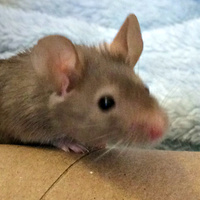
CinnamonPearl- Hero Member

- Join date : 2016-04-06
Posts : 1725

 Similar topics
Similar topics» Breeding Packet
» Old Age Vs. Poor Health -- + more
» Mouse health in general
» mouse health
» Grayson's Health Updates
» Old Age Vs. Poor Health -- + more
» Mouse health in general
» mouse health
» Grayson's Health Updates
Page 1 of 1
Permissions in this forum:
You cannot reply to topics in this forum











